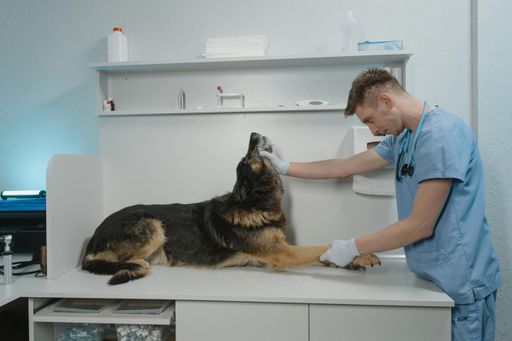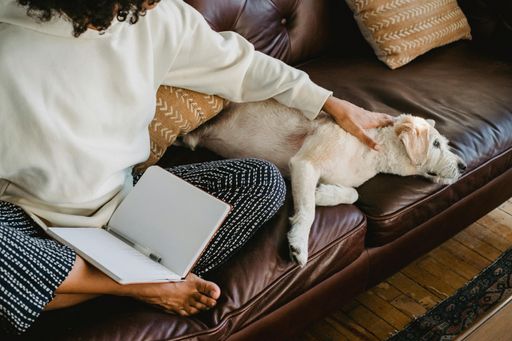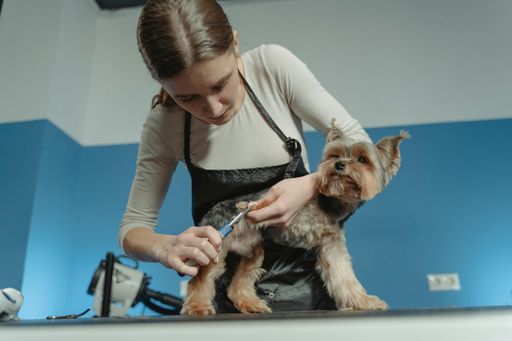For many people, pets are part of the family. A dog or cat can feel like one of your best friends and most trusted companions, and the idea of suddenly separating from a beloved pet can be a frightening one. However, when divorce happens, pets have to go with one spouse or the other.
But who gets the pets in a divorce, and how do judges or courts decide which former spouse gets to keep the dog, cat, or other animals? In this guide, we’ll take a look at how pets are treated during divorce proceedings.
What Is the Law Surrounding Pet Custody After a Divorce?
Even though pets can matter a great deal to their owners, and they don't have quite the same status in the eyes of the law. In fact, from a legal point of view, pets are classed as 'personal property', just like a sofa, a TV, or a dining table.
Unfortunately, this means that there aren't currently any special permissions for pets in the legal system when it comes to divorces, and it's usually up to the couple to try to figure out between themselves which person will keep the pets.
Who Gets Custody of the Dog in Divorce Proceedings?
As explained above, even though the law has certain concepts in place to help with pets after someone dies, like a pet trust, which you can arrange with the aid of a guardianship attorney, the legal system doesn’t currently have a strict set of rules or systems to follow for pets in divorce.
The couple will have to make the decision themselves and figure out who can keep the animal and what kind of visitation rights the other person will have. If they’re unable to do that, they can take the matter to court and ask a judge to decide for them.
The judge will typically look at a wide range of factors in order to make their decision. They’ll take into account things like the living standards of each partner, as well as their income and stability, which can help to decide which partner is better-equipped to provide the levels of care needed by the animal.
How to Get Custody of a Dog: How Judges Determine Custody Agreements for Dog Owners
If you ask a judge to decide on dog or pet custody while going through a divorce, they’ll ask questions of both partners and learn about their living conditions, jobs, and how much they’ve looked after the pet in the past.
Judges will want to know who originally paid for the pet, who looked after it in general, who fed it and took it for walks, etc. They may also want to find out if either person has any history of animal abuse or some other kind of criminal past which could pose a risk to the pet.
They’ll take lots of different factors into account, and anyone who wants to get custody of a dog or cat will need to be prepared. You should be able to demonstrate that you are the best person to look after the animal, proving that you’ve cared for it in the past and that your current living situation is well-suited to meet the pet’s needs.
An attorney may be able to help you with this preparation, and can make arguments in your favor to the judge, showing how and why you are the best person for the role of the pet’s owner, or demonstrating that your former partner is less fit to look after the animal.
What Is a Petnup?
A petnup is a special kind of prenup that is gaining popularity around the world. In the same way that prenups set out the various rights regarding a couple's assets and properties before marriage, a petnup is a legal document which sets out what should happen to the pet(s) if a couple get divorced.
Can You Get Joint Custody for a Pet?
It’s not currently possible to claim for joint custody over a pet in most parts of the world. There are some minor exceptions to this, and the legal situation regarding pets after divorce is undergoing some big changes right now.
However, in most cases, a judge will simply decide on one person to be the official pet owner, and it’s up to that person to then choose whether or not they want to allow the other partner to visit the pet or look after the pet from time to time.
How Will an Attorney Actually Help Me?
A divorce attorney can assist you with trying to obtain ownership or custody of your pet. They'll be able to argue your case in front of a judge, if necessary, as well as negotiating with your ex and their attorney to potentially strike a deal that gives you ownership.



















